5 Simple Steps How to Start Recycling Waste
As someone who takes the environment seriously, it makes sense that you want to do what you can to prevent the need for more landfills. That means learning how to recycle whatever is no longer of any use to you. In some cases, you can repurpose items and get more use out of them. When that’s not possible, disposing of those items responsibly is the next best thing.
Here are some tips that will help you develop a home recycling plan that’s sure to be effective. In fact, it might even lead to a new career opportunity that you never considered before.
Identify the Types of Recyclable Waste Your Household Routinely Generates
Every household generates some types of waste. If you’re serious about recycling things rather than allowing to end up in a junkyard, it pays to conduct an assessment and see how much you use of what. There’s a good chance that you have more recyclable things ending up in the trash than you realize.
What sorts of things can be recycled? Here’s a list that will help you get started:
- Greeting Cards and Junk Mail – cards you don’t want to keep or solicitations you get through the mail don’t have to end up in a trashcan. Prepare them for recycling. Even envelopes with windows can be included in the recycling effort. Do remember to mark over or remove any signs of your name or address before placing the items in the bin.
- Shredded Paper – perhaps you shred documents and other papers when you no longer need them. Do bundle up the shredded paper and use it as filler when you mail packages. If the collection gets to be somewhat large, place the shreds in a plastic bag and add it to the recycling.
- Damaged Books – there’s no need to discard old books that are beyond repair. The paper can also be recycled to make new paper.
- Empty Ink Cartridges – these don’t need to end up in the trash, since they have traces of materials that should not be in a landfill. Turn these in at local stores and you could receive a slight discount on new cartridges.
- Cardboard – you likely have more around the house than you think. Consider the number of cereal boxes, cracker and cookie boxes, and other kinds of paper packaging that you go through each week. All these can be collected and donated to a recycling program.
- Cans - How many cans of soda do you go through each week? How about food cans? Aluminum, steel, and bi-metal can all be recycled. Remember to clean them before placing them in the bins.
- Glass – while many things are packaged in other materials these days, it’s easy to end up with quite a bit of glass around the house. What sort of glass can be recycled? Baby food jars are a prime example. The same goes for pickle jars, ketchup bottles, and condiment containers. Don’t forget that wine and beer bottles can also be recycled with relative ease. Even perfume bottles can be recycled.
Don’t think that clear glass is the only thing that you can recycle. Amber, green, or blue glass can also be broken down and used to create new things. If you’re not sure about something, ask in advance and a professional can provide answers. This is only the beginning. Different types of plastics, fabrics, and even electronics can be recycled. Check with a local program and you’ll know exactly what type of items the accept.
This is only the beginning. Different types of plastics, fabrics, and even electronics can be recycled. Check with a local program and you’ll know exactly what type of items the accept.
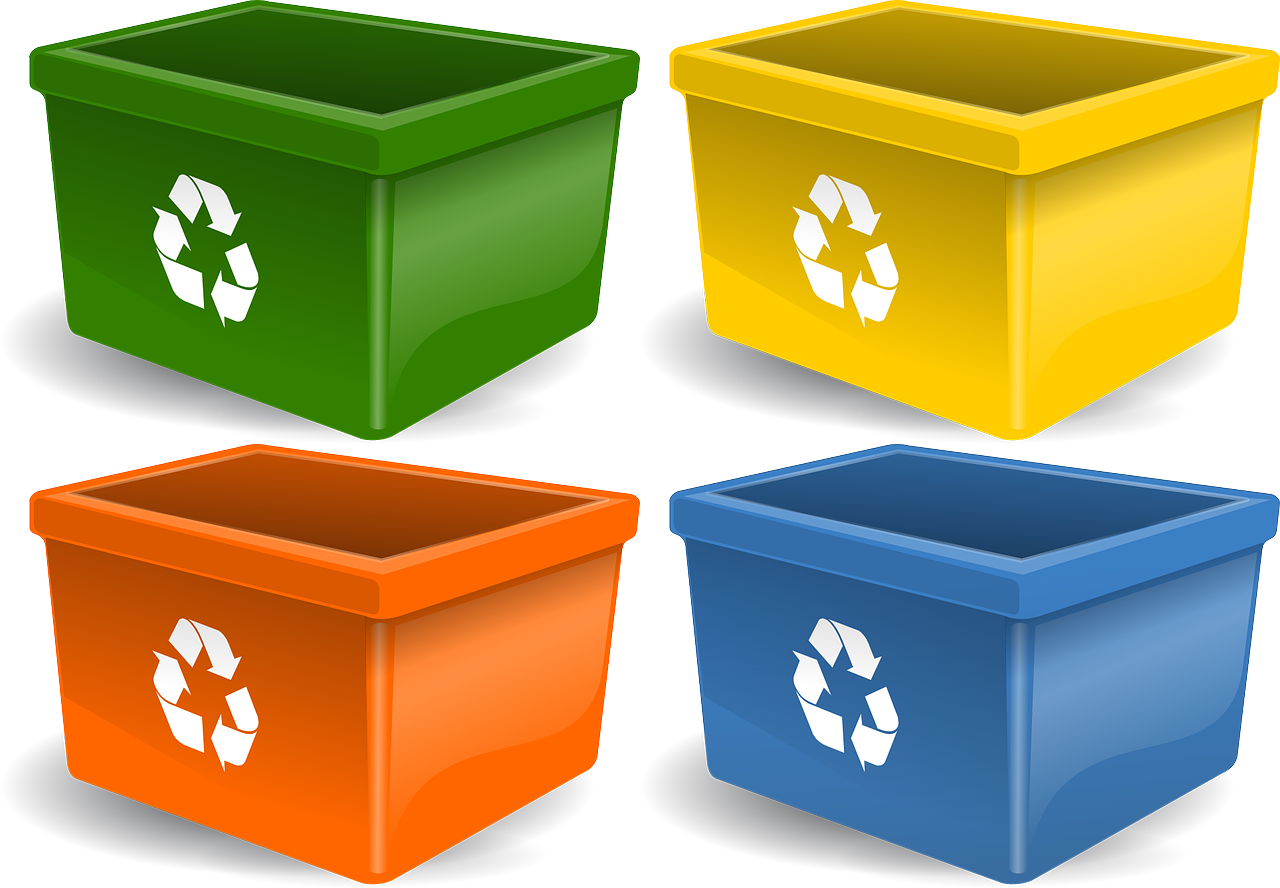
Set Up Bins for the More Common Items
Your inventory will allow you to identify the types of recyclable items that you generate on a regular basis. Break them down into categories and set up a bin for each one. One way to help keep things organized is to choose a different color bin for each type of item. A label identifying where the tin cans go versus the paper items will also help keep the confusion to a minimum.
Deciding where to place the bins is also a key element. They need to be convenient enough to reach without being close enough to be in your way. You may find that keeping them in an area of the kitchen works fine. Perhaps having them lined up at one end of the patio will work nicely. Check around the home and settle on a location that works for you. If that location is outside, do remember that you want a way to get to the bins easily even when the weather is bad.
Remember to wash everything before you place it in a recycling bin. Glass or plastic bottles can be rinsed out in the sink. The same goes for any food cans that you want to discard. The goal is to ensure that ants and other pests aren’t attracted to the area where your bins are stored. It will also be a nice courtesy for anyone who has to handle those items once they arrive at a recycling center.
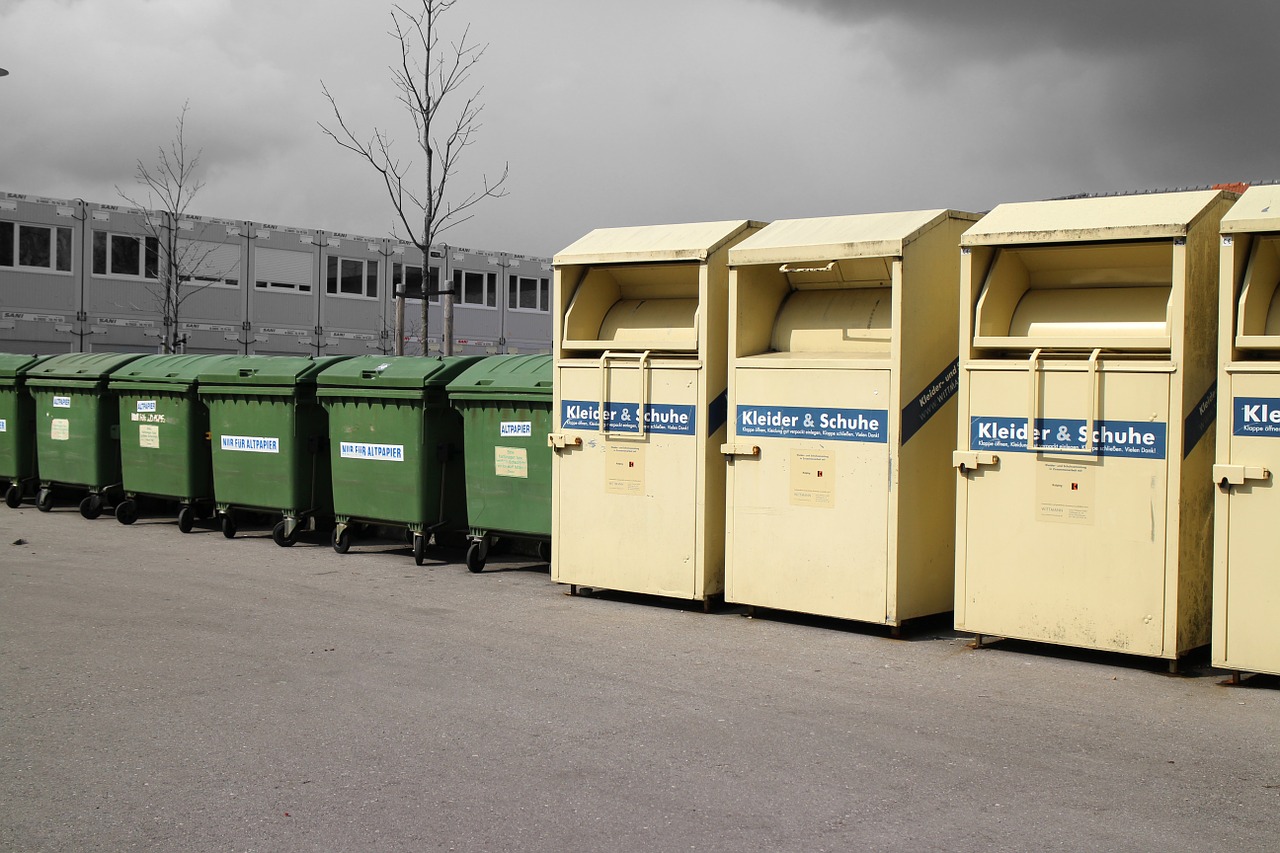
Sign Up to Participate in a Neighborhood or City Recycling Program
Now that you have a strategy for managing the recyclable items, there’s the need to figure out what to do when the bins are full. One approach is to check with the city. There may already be a recycling program in place. With this type of program, city employees may come around once or twice a week to collect the items. At other times, you may be able to arrange a pickup by making a phone call.
There could also be a neighborhood recycling program in place. If so, find out where to take your recyclables and what days they can be turned in. Programs like these are sometimes used as a way to generate revenue for neighborhood watch groups or homeowner associations. A waste removal company typically spots larger containers that people can use to drop off their items, then issues some sort of payment to the group or association. View this as a way to support local efforts while keeping useful items out of landfills.
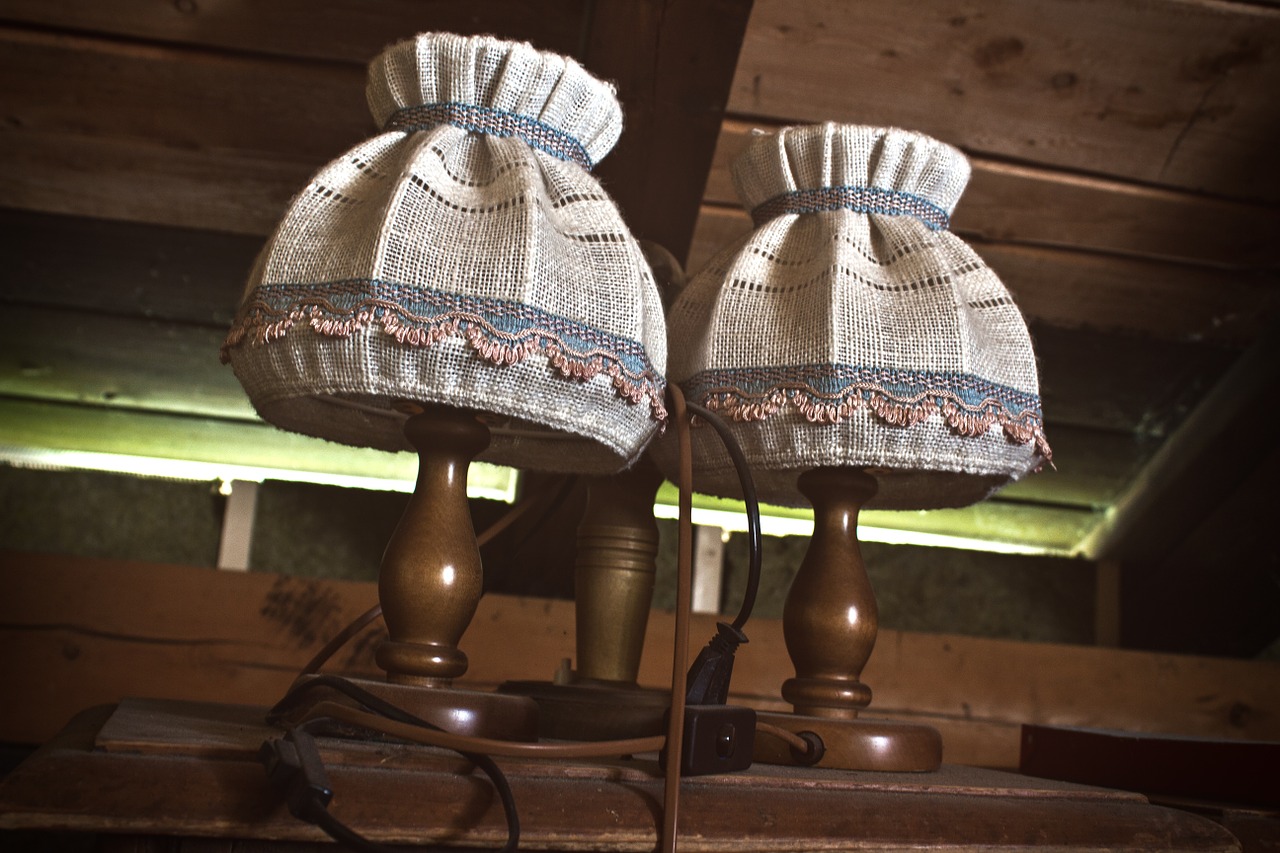
Pass On Things You Will Never Use Again
Not everything will fit into bins. What will you do about larger items that you can’t envision using again? Assuming they are still in decent shape, there’s a good chance someone will want them.
Do let friends and neighbors know when you have things to get rid of and let them have the first choice. You can also contact a local charity that will pick up furnishings, electronics that still work, and other items that don’t need to end up in a recycling bin. This approach to furniture recycling frees space in your home, ensures those things don’t end up in junkyards, and could turn out to be just what someone living on a tight budget needs for their homes.
With appliances and other items that no longer work, there are junk hauling services that will pick them up and make sure they are disposed of responsibly. This often involves stripping them down and salvaging everything that can still be used for replacement parts or in some other fashion. The beauty of this solution is that those things don’t end up rusting away in landfills.
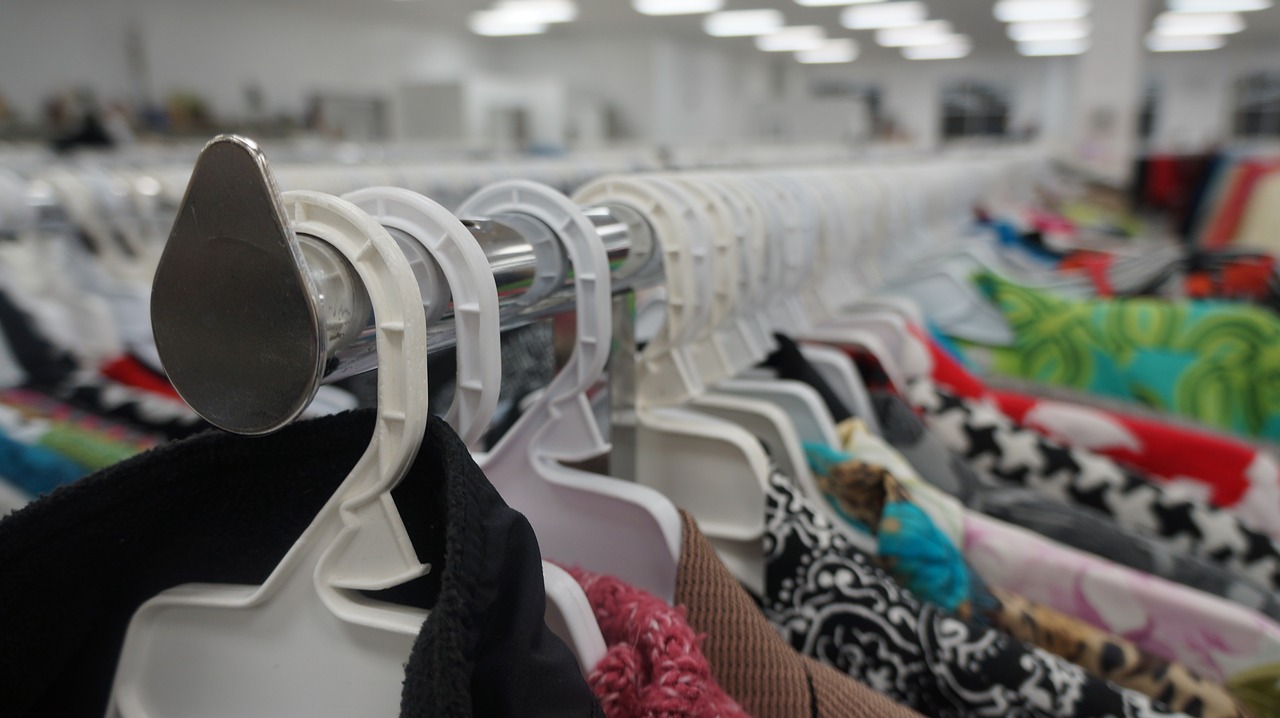
Consider Launching Your Own Waste Recycling Business or Thrift Shop
What happens if there is no city or neighborhood recycling program. How about a thrift shop? Does that mean no one in the area should bother with trying to recycle different types of products? The answer is no.
Assuming that you have some sort of recycling center within a reasonable distance, consider the idea of setting up your own waste recycling operation and coordinate your efforts with the center. This is not as difficult to do as you may think.
By identifying the types of items the center will accept, you can easily structure your services to match. Set up specific pickup dates in different parts of the city and then haul the items to the center. You can easily charge a reasonable fee for the service while also making sure to take along the items that you’ve used at home.
The same is true with a thrift shop. Collecting items that are still usable and offering them to people who need them and can afford modest pricing is one more way to keep things out of landfills.
You don’t even have to start a home decluttering service on your own. There are franchises out there that provide much of the basic instruction and training that you need. Some of them have franchises that you can operate on a part-time basis. Eventually, you may be able to grow the operation into a full-time endeavor. At that juncture, you effectively work for yourself and may be able to offer employment to a few other people.
If you like the idea of launching your own waste recycling business, consider talking with a reputable franchisor like Gone For Good. One quick call to (720) 507-4911 will make it possible to connect with someone who can help you decide if this is the right type of franchise for you.
Remember that recycling is not just about getting things out of the house. It’s not even only about making sure that useful things don’t end up in landfills or junkyards. One of the key goals you hope to achieve focuses on protecting the earth. Doing so means a healthier setting for you and your loved ones today as well as a healthier planet for the generations to come. That’s something worth doing.
Related Posts
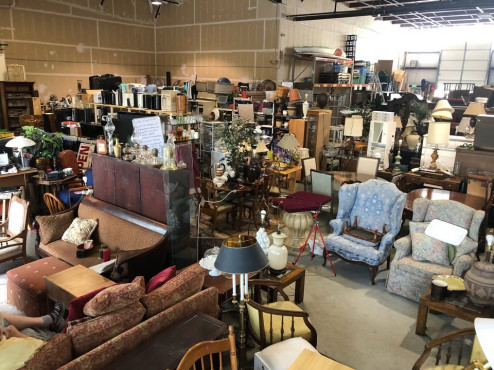 Help Wanted for End of Year Thrift Store Selling
Help Wanted for End of Year Thrift Store Selling
We are seeking a skilled estate sale team or an individual with extensive experience in conducting successful public sales. Our business has accumulated a substantial inventory, and we are aiming to efficiently clear out this stock before the end of the current year. If you or your organization possess the expertise and resources necessary to manage such a project effectively, we would greatly appreciate the opportunity to discuss this potential collaboration with you. Please do not hesitate to express your interest in this prospect.
Read More Estate Cleanouts and Junk Hauling Services for Seniors
Estate Cleanouts and Junk Hauling Services for Seniors
Green junk hauling, downsizing, and estate cleanouts from Gone For Good are available throughout Northern Colorado. Unwanted belongings get a second chance with GFG, whether they go to our thrift stores, charity or get recycled- we can as much as we can out of the landfill.
Read More Fall Home Prep Checklist
Fall Home Prep Checklist
Fall is a great time to clear the clutter from your home. Start getting ready for colder weather and the upcoming holiday season. Here is a checklist to help get you started!
Read More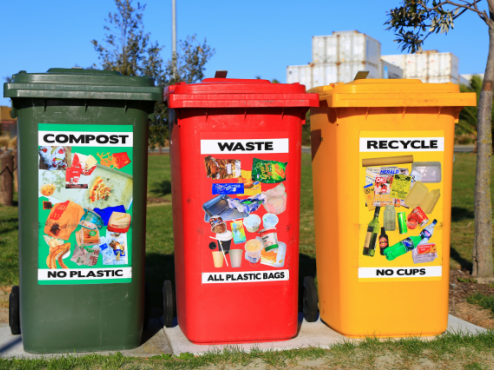 How to Recycle and Why You Should Do It in Aurora, Colorado
How to Recycle and Why You Should Do It in Aurora, Colorado
Recycling is more than just a buzzword; it’s a meaningful way to protect our environment and conserve precious resources.
Read More